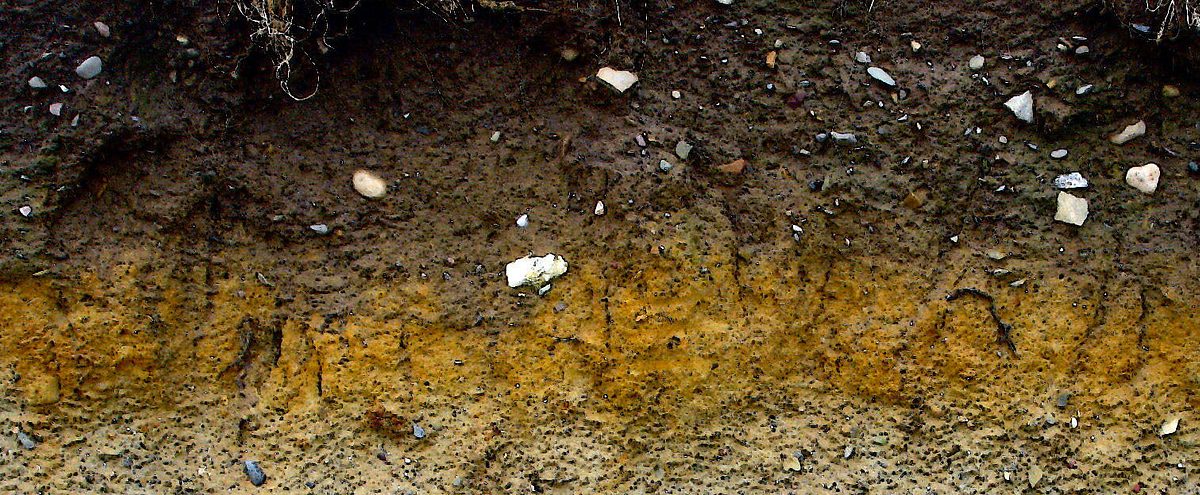
Getting the dirt on soil health
Getting the dirt on soil health engages community members in the Murraylands and Riverland to investigate the health of soils on their property with a free soil testing kit. Anyone is eligible to participate – primary producers, families, hobby farmers, gardeners, schools and more!
Community members in the Murraylands and Riverland are invited to register for free soil testing kits to determine the level of carbon dioxide as an indicator of overall soil health. The test – which can be undertaken on-site – demonstrates the level of carbon dioxide released by the soil and is an indication the soil’s ability to convert carbon into the components that support soil function and plant growth.
What does the level of carbon dioxide tell us about soil health?
All soils contain a range of microbes that undertake essential activities like fixing nitrogen, breaking down organic matter, suppressing plant diseases and enhancing nutrient cycling. The production of carbon dioxide is a by-product of these processes and therefore the amount of CO2 produced by a soil sample provides an indication of how active it is at a microbial level.
Put simply, the more CO2 soil produces, the healthier it is.
In addition to the production of carbon dioxide, the carbon cycle also returns carbon to the soil. Soils with high carbon levels retain water better than low-carbon soils. Carbon sequestration is also one of our best-known weapons against climate change as atmospheric carbon is the worst offending greenhouse gas.
What will I get out of being involved?
Getting the dirt on soil carbon is designed to help community members foster their interest in soil health. By participating, you’ll get an indication of the health of your soils. There are also several optional follow up activities that you can become involved in if you want to further explore soil health.
Participants will be sent the relevant soil testing kits in the mail. Participation is free for anyone in the Murraylands and Riverland region.
How does the soil test work?
Registered participants will be sent a free testing kit in the mail. Each testing kit can be used to test two soil samples. We encourage you to identify two contrasting soil types, i.e.:
- clay and sandy soils,
- bare soils compared with covered soils,
- poor performing soils compared with well-performing soils,
- agricultural soils compared with soils from natural ecosystems,
- soils that have been improved with compost compared with untreated soils.
Once you’ve identified the soils to be tested:
- Collect a small handful of each soil to be tested. Ideally you should take the provided sample jar to the sample site and transfer the soil sample to the jar while minimising the handling and disturbance of the soil. The soil sample should fill the jar to the fill line. Unless the soil is really wet or you've just had rainfall, add 9 ml of distilled water or rainwater to each soil sample with the supplied pipette.
- Open the respiration gel packet (silver foil) and take out the probe, being careful to not touch the gel panel.
- Insert the probe into the soil sample in the jar so that you can see the gel panel is through the side of the plastic jar.
- Put the lid on the jar and wait for 24 hours.
- After 24 hours, compare the colour of the gel panel to the colour chart provided to find the level of carbon dioxide emitted.
What do I do once the soil test is complete?
- Email a photo of the probes with a brief description of the sampled soil (location, land use, soil condition) and email it to Alice Woodward | Project Officer Citizen Science at alice.woodward@sa.gov.au
- For a more in-depth analysis of your soil, send a matchbox sized sample in an unused zip lock bag to our soil extension officer, Barrie Williams at Level 1 Sturt Centre, 2 Sturt Reserve Road, Murray Bridge 5253. Please include your name, email and phone number. This service is available free to landholders in the Murraylands and Riverland region.
- Attend an upcoming soil workshop in the Murraylands or Riverland and find out more about soil test results, soil health and ways to boost soil performance. Participants will be advised about these events via email.
How can I register to participate?
You can register online. Registrations are free and eligible to anyone in the Murraylands and Riverland region.
How can I find out more information?
For information about participating, please contact Alice Woodward | Project Officer Citizen Science at alice.woodward@sa.gov.au | 0498 283 929
For technical advice about soils, please contact Barrie Williams | Soil Extension Officer at barrie.williams@sa.gov.au | 0427 834 396
How to conduct a soil respiration test
This project is supported by the Murraylands and Riverland Landscape Board through funding from the landscape levies.